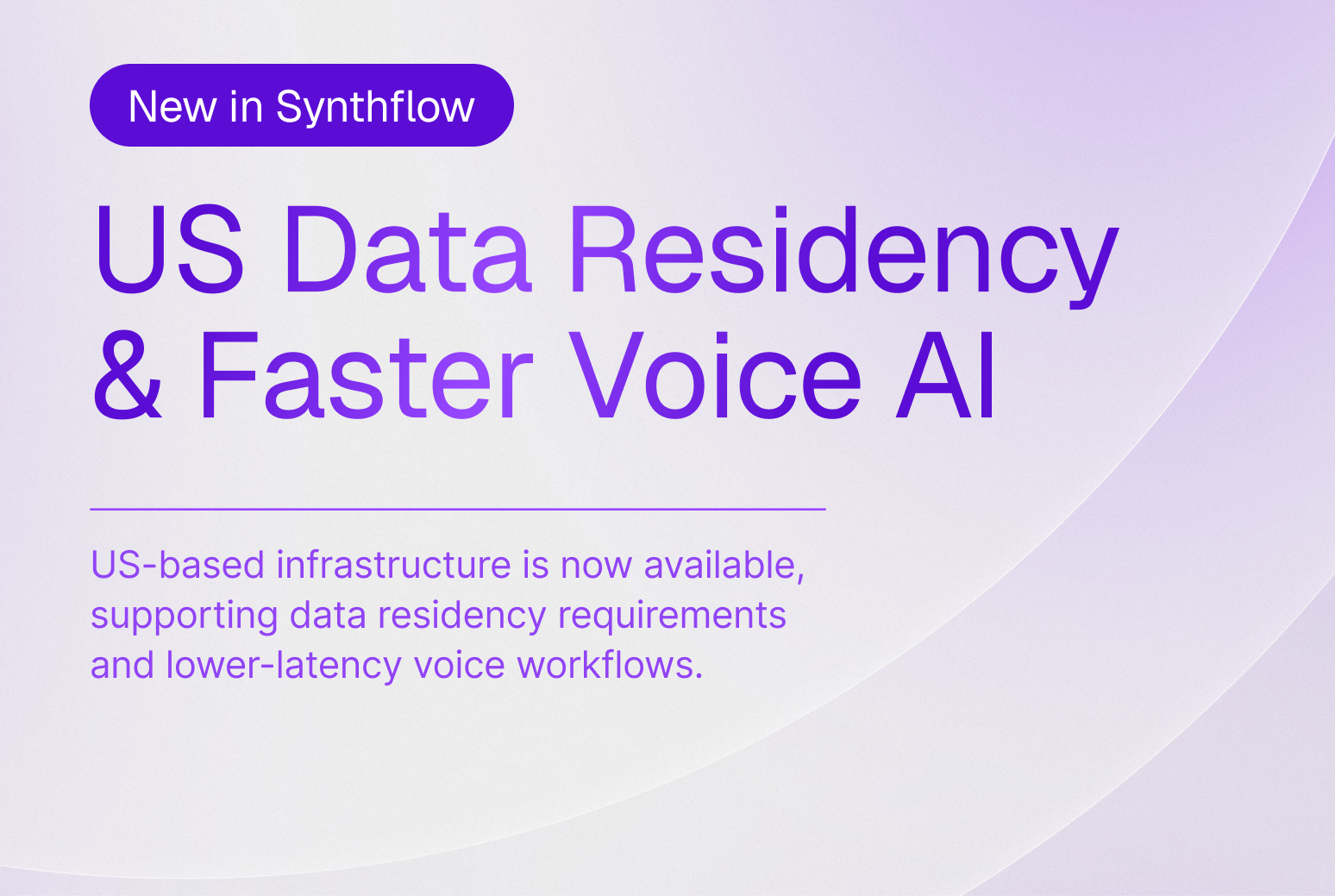“If you build it, they’ll come” for decades, that’s been true for well-located retail, office and residential real estate. But today, the paradigm shifts, higher interest rates, higher inflation, and climate change are forcing the leaders to face the fierce reality. If you build it—or buy it–they still might not come.
The real estate industry is undergoing a revolution, and Generative AI is at the heart of it. You cannot simply rely on traditional sales practices to get ahead of the competition. From streamlining property management to helping buyers find their dream property–AI is transforming every aspect of the real estate market.
Gen AI has the potential to completely transform the real estate industry by generating between $110 to $180 billion in value in the coming years. Despite this fact, only a few organizations know how to make the most of artificial intelligence.
Want to know how to replicate this for your real estate business? In this blog, we'll explore what generational AI is in real estate, its use cases, and how to implement generative AI for your real estate business.
What is generative AI?
Gen AI is a type of artificial intelligence that can generate high-quality text, images, audio and other content depending on the data they’re trained on.
These models identify and encode the patterns and relationships even in huge amounts of data, and then use that information to understand the user's natural language requests and respond with relevant new content.
Simply put, researchers feed these AI models large training datasets, including images, text audio or other data types. The quality and breadth of the training datasets significantly impact AI’s output.
For example, GPT 3.5, a foundational model trained on large volumes of text and can be adapted for answering questions, sentimental analysis or text summarization, and DALL-E, a text-to-image foundational model, can be adapted to create images, create variations or expand images beyond their original size.
Generative AI can revolutionize the real estate industry by streamlining property listings, enhancing customer interactions, and optimizing market analysis. AI-powered tools can generate high-quality property descriptions, create virtual staging for homes, and personalize marketing materials to attract potential buyers. Chatbots and virtual assistants can handle inquiries, schedule viewings, and provide instant responses, improving customer engagement.
Future of Generative AI in Real-Estate
Generative AI is a subset of the broader field of AI. Both general AI and generative AI enhance how commercial and real-estate firms operate, but it's important to differentiate the two to understand the true “generative” aspect of AI.
According to Deloitee’s 2024 commercial real estate outlook survey, over 72% of real estate owners and investors around the globe are already committing or planning to commit their budget to some type of AI-enabled solutions within their organizations.
Since the advent of generative AI in 2021, corporate investments have exceeded US$3.5 billion as of October 2023, representing a nearly 50% increase compared to the total from 2018 to 2020 and a 95% surge compared to the three years preceding the pandemic.
The greatest areas of interest to these real-estate investors include artificial intelligence and machine learning services for transaction-focused function areas like investment and valuation (20%), and real estate data analytics (8%). But the biggest slice of the cake goes to property listings at 42%.

Gen AI’s strengths generally fall into one of four categories, majorly called “the four C’s”.
The first is customer engagement, which can be supported by tools like conversational chatbots that answer customer queries and remove any doubts from customer interactions. The second is creation; these tools generate new creative content, including text and images. The third one is concision; synthesizing information from unstructured data, querying large data sources and interpreting conversations. The fourth one is coding; of which gen AI may offer translating, interpreting and generating code.
Mckinsey says that real-estate companies gain over 10 percent or more in net operating income through stronger customer experience, efficient operating models, new revenue streams, and tenant retention with the use of generational AI.
Benefits of Generative AI in real-estate
You’d be hard-pressed to find any organization not talking about AI and its potential uses. And real estate is no different. However, there are still a lot of questions in determining how this advanced technology can be applied to commercial real estate.
Here are three ways how AI impacts real estate:
1. Sifting through mountains of leasing documentation
Any real estate company has a repository of documents, which is usually dense and filled with bespoke terminology, making it difficult for retail agents to sift through and find information at scale.
A gen AI-powered tool can summarize key themes across the leases, such as how much rent is expected monthly or what forces (such as environmental, local, social and governance compliance laws) could affect leases.
Additionally, the tools can scan across leases for a particular parameter (for example, all leases with rent price per square foot below a certain level) and generate the required information.
2. Making faster, more precise investment decisions
Today, investment decisions are often more informed through analysis of bespoke data pulled across sources. For instance, an investor interested in buying warehouses starts by performing a macroanalysis of market factors such as airport locations, ports and high e-commerce volume.
Then, they start to perform more granular analysis to locate areas of interest and pull building information from local brokers or digital tools. In this, the investor conducts discrete analysis to figure out how their investment hypothesis has panned out in the past.
But with a gen-AI tool finely tuned using internal and third-party data, an investor can simply ask, “What are the top warehouses up for sale that I should invest in?” The tool can sort through the unstructured data–both internal (such as the performance of the listing property and its lease terms) and third-party (such as comparable sales, US census, and publicly recorded).
The gen AI tool can lay a list of properties up for sale and help investors identify opportunities that are worth manual investigation.
3. Enabling visualization and creating new revenue streams
Today, when a potential tenant looks at raw space on a tour or a potential resident views a picture of the apartment on a listing site, they see an empty unit or photos filled with someone else’s finished pictures.
Virtual reality tours have helped, but these static, non-customizable elements usually don't show the end user what the results could be.
Gen AI can help potential tenants visualize exactly how their apartment would look like, say, their preferred wooden flooring or cherry wood vs walnut finishes. There can also be ecommerce tie-ins: as a prospective tenant tours a unit, an app can virtually propose a variety of couches, window trims or kitchen appliances that match a desired style. If the resident decides to buy or lease the property, these can be ordered and set up when the tenants move in.
A real estate agent can launch a gen-AI-powered product visualization tool that allows users to upload a photo of the room and populate it with furniture from its catalogue. A variety of businesses across the value chain can leverage this capability to generate new revenue streams and strengthen customer loyalty.
4. Saving time
Salesforce surveyed over 1000 marketers and found that 51% are currently using Generative AI and an additional 22% plan to use it very soon, totalling nearly three-quarters of marketors.
Out of these 71% of them say Generative AI saves time and eliminates busy work, allowing them to focus on more strategic work.
Similarly, Gen AI saves time for real-estate agents by:
- Automated Listing Generation: AI can instantly create compelling property descriptions based on basic details (e.g., size, location, amenities).
- Automated Market Reports: AI can generate real-time market insights, saving agents hours of research.
- Chatbots & Virtual Assistants: AI-driven chatbots can engage leads 24/7, answering common questions and pre-qualifying prospects.
- AI-Generated Ad Copy & Emails: AI can craft personalized outreach emails, social media ads, and follow-up messages.
Marketers leveraging generative AI are primarily focusing on fundamental tasks such as content creation (76%) and copywriting (76%). However, many anticipate a significant transformation in their field, with 53% considering generative AI a “game changer.” They highlight its potential to revolutionize data analysis, personalize messaging, develop marketing campaigns, and enhance SEO strategies.

Key Generative Use Cases in Real-Estate
AI’s applications in the real estate industry are vast and varied. For instance, AI-powered algorithms can analyze extensive datasets to provide accurate property valuations, helping real estate agents make informed decisions. Predictive analytics, another AI-driven innovation, allows real-estate companies to forecast market trends and identify lucrative investment opportunities.
In this section, we’ll delve into key uses of generative AI in real estate and explore its transformative applications in the industry.
Customer service transformation with AI voice agents
Conversational AI refers to technology that enables machines to engage in human-like conversations with users leveraging natural language processing (NLP) and machine learning. In real estate, conversational AI includes chatbots, virtual agents and voice assistants, which can handle multiple tasks, from offering personalized property recommendations to answering client enquiries.
AI voice agents help real estate agents in a variety of ways:
- Lead qualification: It takes 7 minutes to pre-qualify a new lead, which in turn is 7000 minutes for 1000 leads. That’s a lot of time lost in lead qualification. AI voice bots can automate this process about a lead’s preferences and budget. AI systems can assess this data and prioritize leads most likely to close, enabling real estate agents to focus on high-value prospects.
- High-priority leads: Actively planning to buy or sell within the next 3 months.
- Medium-priority leads: Interested but not planning to take action immediately, with a timeline of 6 to 12 months.
- Low-priority leads: Exploring options without a clear intention or timeframe for buying or selling.
- Instant responses: With AI voice agents, customers don’t have to wait hours–or even days–to receive responses. AI-powered chatbots can enhance lead generation in real estate by 33%. AI chatbots can instantly respond to inquiries and answer questions about property evaluations, pricing, location and more.
- Automating follow-ups: Let’s say you have a warm lead who isn’t ready to move forward yet but is still interested. Instead of manually setting reminders or making periodic calls, the AI assistant can handle follow-ups. It can send regular follow-up messages, asking if the lead is still interested or simply checking in to see if the situation has changed.
The easiest way to get started is by using an AI-powered voice tool like Synthflow that will help you scale and automate lead qualification.
Voice bots respond in seconds, process thousands of requests per minute, pre-qualifies leads, and seamlessly update your CRM. Synthflow AI can make a large volume of calls to qualify leads based on your sales team's predefined criteria.
Automated marketing and property evaluation
Historical real-estate marketing relied on traditional methods like print advertisements, open houses and direct mail. These techniques have long been the foundation for reaching potential buyers and tenants. The digital shift has revolutionized real-estate marketing, introducing virtual agents, online listings and social media platforms.
Here are multiple ways automated marketing helps real estate:
- Virtual property tours: A virtual property is a digital property representation that allows potential buyers to explore the place virtually. According to Harvard Business School, 22% of houses use virtual tours, and sellers who use virtual tours experience an increase of 1.1.% in sales profit compared to those who do not. Generative AI helps them improve by offering realistic and interactive 3D virtual tours.
- Automated property valuation: Property valuation is the process of assessing a home and estimating its worth based on its condition, location and various other factors. Generative AI can streamline property valuation by closely analyzing market trends, property statistics and historical sales records. AI tools can predict property prices with 95% accuracy, helping potential buyers make smarter investment decisions.
- AI Marketing Campaigns: When selling a home, marketing to the right target audience is key. Properly executed real-estate marketing strategies expose customers to properties that can help lead to a successful sale. Gen AI tools can help with marketing campaigns by customizing social media content, creating shareable marketing materials, and optimizing video marketing strategies to make content more engaging. Synthflow AI also lets you retarget your leads by conducting multiple follow-ups and convincing them why this should be their best time to buy your real-estate service.
Asset management and investment decisions
In a recent survey conducted by EY Financial Services, executive and managing directors from wealth and asset management firms with over $2 billion in revenue were asked to rank the top three Gen AI use cases. The most popular use cases of Gen AI were data ingestion to drive strategies, financial advice and client onboarding ranking at the top.
Gen AI can deliver significant value to wealth and asset management organizations in the following areas:

By harnessing the power of Gen AI, realtors gain unparalleled visibility into physical asset performance–giving them the power to predict future failures before they disrupt operations.
According to IBM, 71% of executives say gen AI fundamentally changes how they’ll manage assets–72% of executives say it increases the strategic value of physical asset management to their enterprise.

For example, Gen AI can help realtors decide when it makes sense to repair a property or buy a new one. In the next two years, 68% of the executives plan to use Gen AI to assess the depreciation of individual assets, and 77% expect to use it for entire asset evaluation. This level of granularity will give realtors the clarity they need to make more informed decisions and drive more value from their physical assets over time.
Wrapping up
Real estate is about making the right choices at the right time. If you’re willing to revolutionize your real-estate game and provide the best client experience, then adopting a Gen AI solution is crucial. It can not only propel your growth but will also stand you out from the competition.
One of the strongest methods of lead qualification is AI-powered voice agents.
This is where the Synthflow AI platform steps in, offering a comprehensive solution to the sales team to automate their lead qualification process.
Synthflow's no-code, drag-and-drop interface allows users to set up a voice agent in minutes without needing any technical knowledge or coding ability. It can seamlessly handle and make a large volume of calls across all timelines and languages.
With Synthflow AI platform, you can:
- Create and launch your generative solution in minutes.
- Offer automated customer service across chosen platforms, including voice and chatbots, ensuring a seamless omnichannel experience.
- Deliver tailored responses based on a comprehensive understanding of customer profiles, reducing resolution and response times through smart replies and pre-set responses.
- Analyse customer conversation across more than 20 channels, optimizing future responses and enhancing customer engagement through conversation analytics.
Want to try a free demo to see how you can replace your traditional call centres with AI voice bots? Sign up here.






